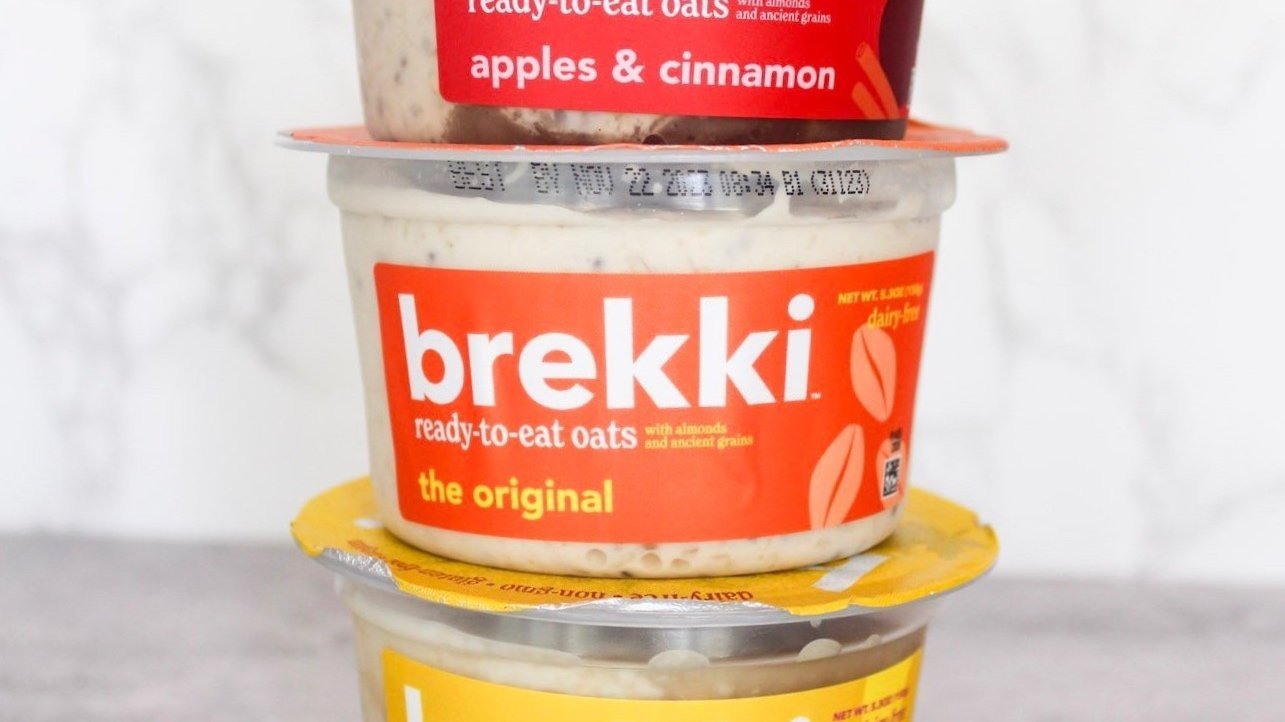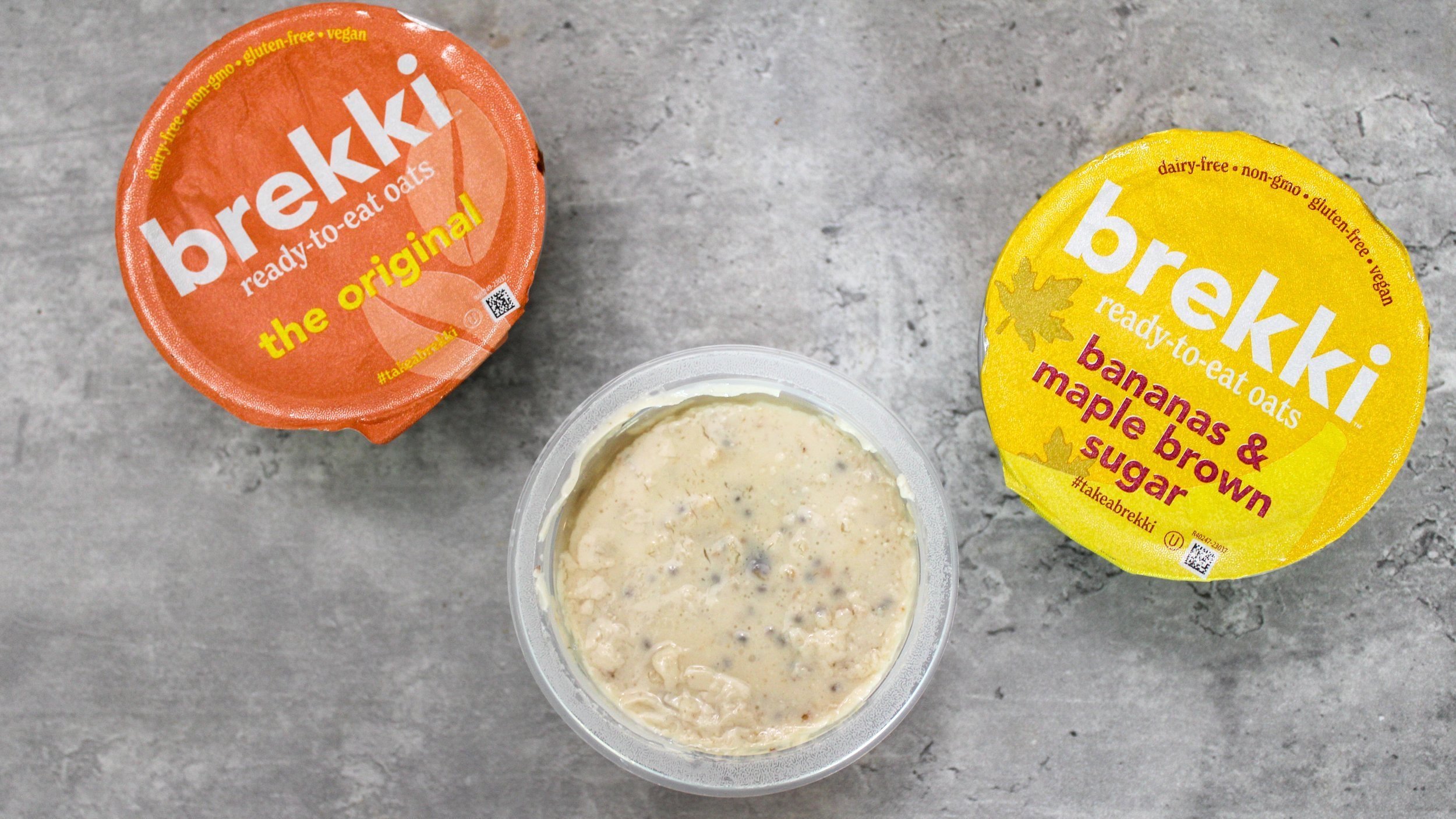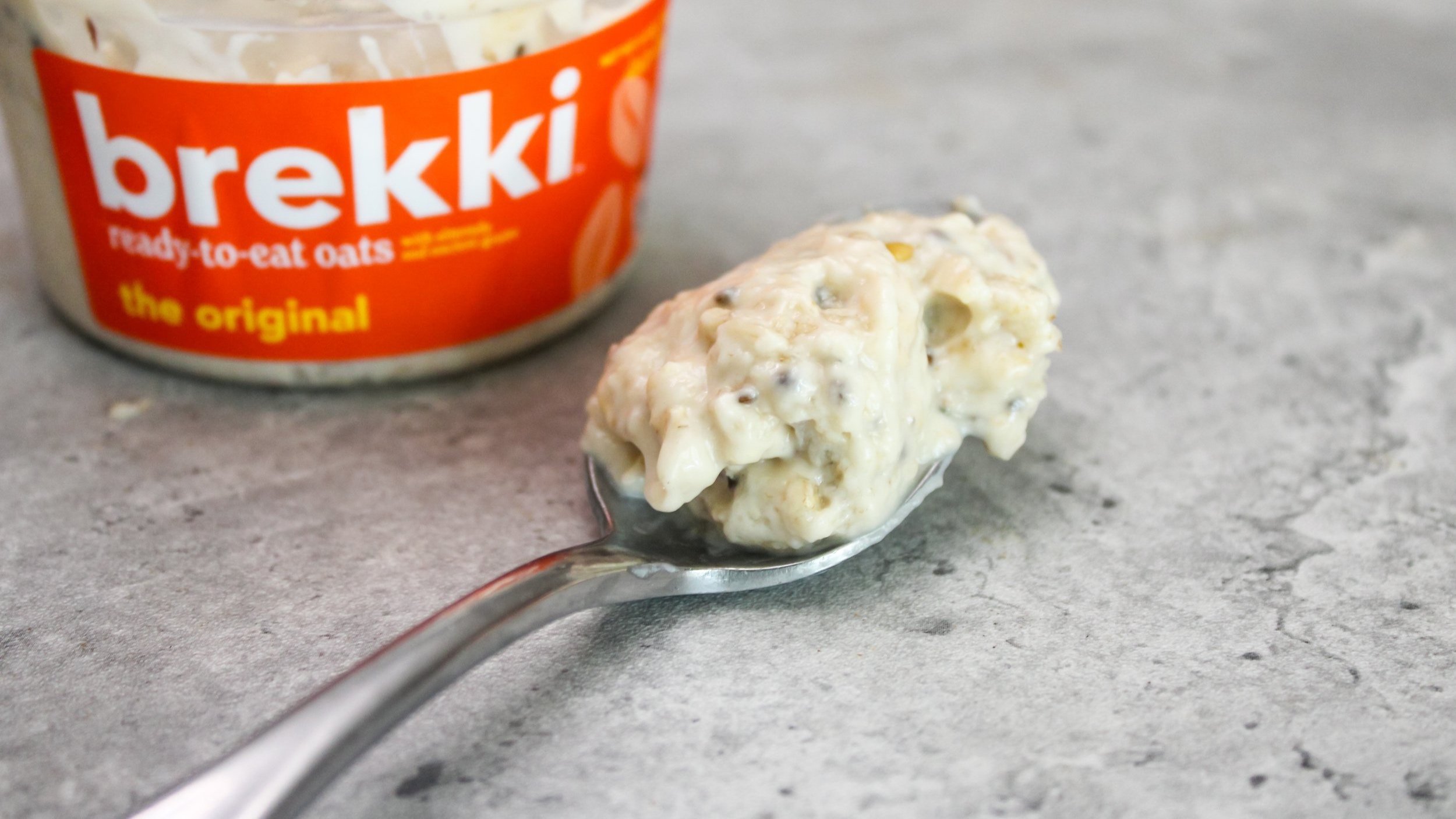Brekki Overnight Oats - A Dietitian Review
If you are looking for a quick, grab-and-go breakfast option then Brekki Overnight Oats may have caught your eye. Today we will do a deep dive into these overnight oat cups and find out if they are a good fit for you and your family!
We love convenient, grab-and-go breakfast options and the market for them continues to grow at the store. It seems that every time I make a grocery run, there is a new brand on the shelf or in the refrigerator designed to make eating a healthy breakfast feel easy.
One brand that I get asked about online is Brekki, an overnight oat product that can be found in the refrigerated section of the grocery store. So let’s dive in to a thorough review including a product overview, a peek at the ingredients, how it stacks up to competitors, and the pros and cons of including it in your diet!
What is Brekki?
Brekki is a ready to eat oats company that continues to grow in popularity, and for good reason! Brekki offers convenient, ready to eat and nutritious refrigerated oat cups that can be enjoyed as breakfast, snack, or really any meal of the day.
Brekki Ingredients
The company website states that Brekki is “no dairy, no gluten, no GMOs, and no funny business.” These oat cups are made with almond milk, making them a dairy-free option that is also soy free and vegan. The calories range from 200-230 calories, protein ranges from 6-8 grams, and the added sugar ranges from 0-10 grams per cup.
The Brekki website features eight different ready-to-eat oats flavors, so ingredients do vary slightly based on the flavor. Four of the flavors (original, cinnamon vanilla, cold brew coffee, and chocolate) are fully mixed and the other four fruit flavors (apples & cinnamon, bananas & maple sugar, blueberries, and strawberries) have fruit on the bottom. While the flavors vary the ingredients slightly, every Brekki cup features:
Ancient Grains like buckwheat groats and rolled oats- I am all for variety in the diet so I love to see the different types of grains featured in Brekki cups. Buckwheat is actually a fruit seed but it ground up and commonly used as a grain. It is high in vitamins and minerals and rich in fiber so a great addition to the diet. Oats are a great source of soluble fiber.
Almond milk: their almond milk includes water and almond butter which adds some protein but also keeps these cups dairy free for those who need or prefer it. Generally speaking, almond milk is not the milk alternative I typically recommend as it is very low in protein and fat compared to some of the other alternatives which makes it less satiating.
Almonds: almonds are featured in every Brekki cup and add in a bit of plant based protein and Vitamin E, copper, magnesium, and other important nutrients.
Chia seeds: I love including chia seeds in overnight oats and was thrilled to see these incorporated in the Brekki cups. Chia seeds add protein, omega 3’s, and boost the fiber content.
Flax seeds: Similar to chia seeds, I always try to include flax into my oatmeal as well. Personally, I used ground flax seeds for better absorption but these here are whole flax seeds. Flax seeds are a concentrated source of healthy fats and always a good thing to include with a carb heavy breakfast like oatmeal.
Organic coconut nectar: this is a natural sweetener that is featured in each cup and adds a touch of sweetness. The other sweetener used is organic cane sugar in some of the flavors.
Vegan cultured dextrose: we have all heard of dextrose, which is used to sweeten products, but what is cultured dextrose? Cultured dextrose is a sugar that has had probiotic bacteria added to it and is used to extend the shelf life of products. Read, it is a form of a preservative. Generally, the bacteria is sources from dairy products but the note that this is a vegan cultured dextrose shows that the bacteria has been sources elsewhere. Cultured dextrose can actually be found in many different products including dairy, breads, and pastries.
Other additives: Other additives and preservatives that you will see on the ingredients list include pectin, a gelling agent that contributes to the texture, salt which can be used as both a preservative and a flavor, and lemon juice concentrate which is also used to preserve.
Natural flavors: seen in all but three (the original, vanilla cinnamon, and dark chocolate) Brekki flavors. The FDA states that natural flavors are derived from a variety of natural sources including spices, plants, and animal products that are used to add flavor to the product and not for a nutritional purpose. These natural flavors are used in addition to some, but not much, fresh fruit in the fruit-flavored cups.
Again, some of the flavored cups have slightly different ingredients but this list hits the bulk of what you will see. Remember that, while many of these ingredients are fantastic to include in a balanced diet, there is a mix of these ingredients in those small 5.3 oz cups so they may not be significant sources of each ingredient. Cough- there isn’t enough fruit to actually count as a fruit serving from this dietitian’s perspective- cough.
How Does Brekki Taste?
Alright, this is the subjective section because everyone has different taste buds, but I will include my own personal thoughts. I won’t lie, I had to go on a mission to find some Brekki cups to sample and ended up finding three flavors at my local Central Market. Here is my feedback on the flavors that I tried:
Original (210 calories, 7 grams protein, 0 grams added sugar): This is a fully blended cup without fruit on the bottom. The consistency on this one was a bit thicker than the other two flavors that I tried but still very creamy. This was actually my favorite of the three, it’s nothing fancy and is the perfect base to add nut butters, fresh fruit, chopped nuts, or other healthy toppings! I also think this is a good option for feeding toddlers and babies because it has no added sugar and could be an easy meal prep without the prep.
Apples & Cinnamon (220 calories, 6 grams protein, 9 grams added sugar): This is one of Brekkis fruit flavors so it features a fruit blend on the bottom. Personally, I loved this flavor and would definitely buy it again! It’s not super sweet and I think the chunks of almonds pair perfectly with the flavor profile. Added sugar is higher than I would like to be for breakfast.
Bananas & Maple Sugar (200 calories, 6 grams protein, 7 grams added sugar): This flavor also features a fruit blend on the bottom. This one was MUCH sweeter than the apples and cinnamon flavor in my opinion. I was worried about the banana flavor being overpowering but I would say it’s actually nicely balanced and you get plenty of maple sugar flavor coming through.
How Much Does Brekki Cost?
This will depend on where you buy them from but most of them were priced between $2 to $2.50 per cup. Not bad for all of the ingredients that are included but it, of course, is more expensive than buying a 42 oz container of old fashioned oats from the store for under five dollars and prepping your own breakfast at home. This is a personal decision that should work for you and your family’s finances.
How Does Brekki Compare to Its Competitors?
There are quite a few oatmeal cup options on the market but two primary competitors that are branded as “overnight oats” are MUSH and Oats Overnight. For the sake of page space, here is just a brief product comparison that considers many but not every factor with the competitors:
Compared to MUSH:
Similarities:
1) Convenience: Both are pre-mixed, ready to eat, and refrigerated. All you need is a spoon!
2) Allergen/Dietary preference: Both are made with almond milk (MUSH also has some made with oat milk) and are gluten free.
3) Price: Similar price points right around $2 to $2.50 per cup but there is an option to subscribe with MUSH which could make it more affordable.
4) Nutrition: Similar in calorie and protein content with calories and protein in Mush ranging from 180-270 calories and 4-11 grams of protein per cup.
5) Fiber: Both are good sources of fiber containing at least 4 grams per cup.
Differences:
1) Flavor options and sweeteners: MUSH has slightly more flavor options and many of them have been sweetened with dates or fruit instead of coconut dextrose or cane sugar that can be found in the ingredients of Brekki.
2) Ingredients panel: MUSH products have a shorter ingredients list (granted, some of the ingredients that are found in the Brekki cups like chia seeds and flax seeds are nutrient dense and I would like to see them on the MUSH ingredients panel.)
3) Added sugar: One of the main differences that I saw between these two similar cups is that overall, MUSH had a much lower added sugar content in the vast majority of their flavors having zero grams of added sugar.
4) Texture: In my opinion, Brekki is blended and combined better than the MUSH cups. Though still spoon thick, the Brekki cups are much creamier and the liquid doesn’t separate as much as what I have noticed in the MUSH cups that I have had.
Compared to Oats Overnight:
Similarities:
1) Allergen/Dietary Preference: Both are vegan friendly (Oats overnight also has dairy containing flavors) and gluten free.
2) Healthy extra ingredients: Both companies incorporate flax seeds and chia seeds into their ingredients which adds healthful nutrients like protein, omega 3’s, vitamins and minerals.
3) Higher added sugar content: Both have Brekki and Oats Overnight have more added sugar than what you see in the MUSH cups.
Differences:
1) Shelf stability: Oats overnight is a shelf stable option that you pour your favorite kind of liquid into which allows for customization and on the go/travel convenience.
2) Flavor options: Oats overnight has significantly more flavor options that appeal to different dietary needs and preferences.
3) Nutrition: Oats overnight calories are between 200-300 calories but is also much higher in protein with some products containing over 20 grams.
4) Availability: Because it is on the shelf, Oats Overnight is more readily available at a variety of stores including Walmart and Amazon The company website also allows for subscriptions.
5) Texture: Brekki has a much thicker texture compared to the almost drinkable texture of oats overnight.
6) Ingredients: Oats Overnight also has a longer ingredients list, including protein powder.
7) Price: Oats overnight is slightly more expensive with their subscription averaging about $2.81 per bag on the website or their bottles retailing for about $2.98 at Walmart.
If you want to ask which one I buy, I personally go for the Oats Overnight despite the added sugar content and longer ingredients list. It is slightly more expensive but I generally prefer their thinner, almost drinkable texture over the thicker texture of Brekki and Mush. I also like that Oats Overnight offers more product customization options through liquid choice (I make mine with milk) and has much higher protein content making it more satisfying for meal time.
If your main goal is to minimize added sugar, there are flavors from each company that are lower in added sugar in addition to most of the MUSH cups having no added sugar. Overall, all three are great and it really depends on what you want out of your oatmeal cup… higher protein, lower added sugar, shorter ingredients, etc. Remember that you can always pair these oat cups with other foods to balance out the macronutrients!
Here are a few pro’s and con’s (with modification suggestions) that I see with the Brekki overnight oats. Of course, this is my perspective as a dietitian, so you should consider these points in the context of your own diet and nutrition needs.
Pros:
1) Convenience: Brekki is very convenient and makes it easier for people to grab a nutritious breakfast or snack instead of skipping it all together. This helps establish a good morning rhythm and can even help balance blood sugars and cravings throughout the day.
2) (Mostly) Allergen friendly: Great option for those with allergies or specific dietary preferences. The Brekki cups are dairy free, gluten free, and soy free which makes them a vegan friendly breakfast option and also good for those with dairy, gluten, or soy allergies or intolerances.
*Note that these products do contain tree nuts*
3) Fiber: All flavors are a good source of fiber with each one containing at least 4 grams of fiber. Fiber supports heart health, feeds gut healthy bacteria, and digests slowly which helps you feel more satisfied. In general, women should aim to consume at least 25 grams of fiber per day and 38 grams of fiber per day for men. Another recommendation that I will give is to aim for 14 grams of fiber per 1,000 calories.
4) Nutrient Dense Ingredients: I like that, despite a shorter ingredients list, Brekki adds chia seeds and flax seeds which contribute nutrients like fiber and omega 3 fatty acids that people should consume more of.
Cons:
1) Low calorie and protein content for meals: For a meal, Brekki overnight oat products are low in calorie and in protein which could make you feel hungrier sooner than you would like. To combat this, I would actually recommend eating Brekki as a snack OR pairing the cups with protein containing foods like eggs, higher protein yogurt, or even cottage cheese for a more balanced and satisfying meal.
2) Not Almond/Tree Nut Allergen friendly : Every Brekki flavor does contain almonds so they may not an option for those with an almond or tree nut allergy.
3) Some are high in added sugar: While lower than many flavored yogurts on the market, some of the Brekki flavored options are higher in added sugar (10 grams of added sugar) than I would like to see, especially when considered alongside the low protein content. My goal is to keep added sugar as low as possible, or under 5 grams. If you want to minimize added sugar, I would choose the original or vanilla cinnamon flavor.
4) Not a fruit serving: Ok, this is just the dietitian in me but I find that the fruit branding could be misleading for some people. Don’t get me wrong, I like that they have real fruit, but the fruit content is going to be pretty small. While they do have a few fruit flavored options, these do not count as a “serving of fruit” since the portion is so small. For this reason, I would recommend pairing these with a whole piece of fruit, making your own overnight oats that are topped with fresh fruit, and aiming for at least 5 servings of fruits and vegetables per day.
5) Price: As with most individually packaged options of anything, these can be pricy. Remember that you can always make affordable overnight oats at home and I have tons of recipe inspiration including cinnamon overnight oats and high protein overnight oats with date caramel.
The Takeaway:
Brekki Overnight Oat cups contain many nutrient dense ingredients that add important nutrients like whole grains, fiber, vitamins, minerals, and phytonutrients so it does get this dietitians stamp of approval. As mentioned before, I love that it helps break down breakfast barriers that many people encounter and get discouraged by!
While there are competitors, I think Brekki is a great option for many people and I personally think it is a great option for a kids snack or meal (since kids don’t have as high of protein needs as adults). As an adult, keep in mind the added sugar content and be sure to pair it with a higher protein option if you want to use Brekki cups as a meal. Other than that, Brekki overnight oats are a healthy option to include in a balanced diet!
*This post may contain affiliate links
Hey! I’m Lauren
Feeling overwhelmed by the ever-changing products, hacks, and programs that all say they’re the next best thing? I have reviews from a registered dietitian!






